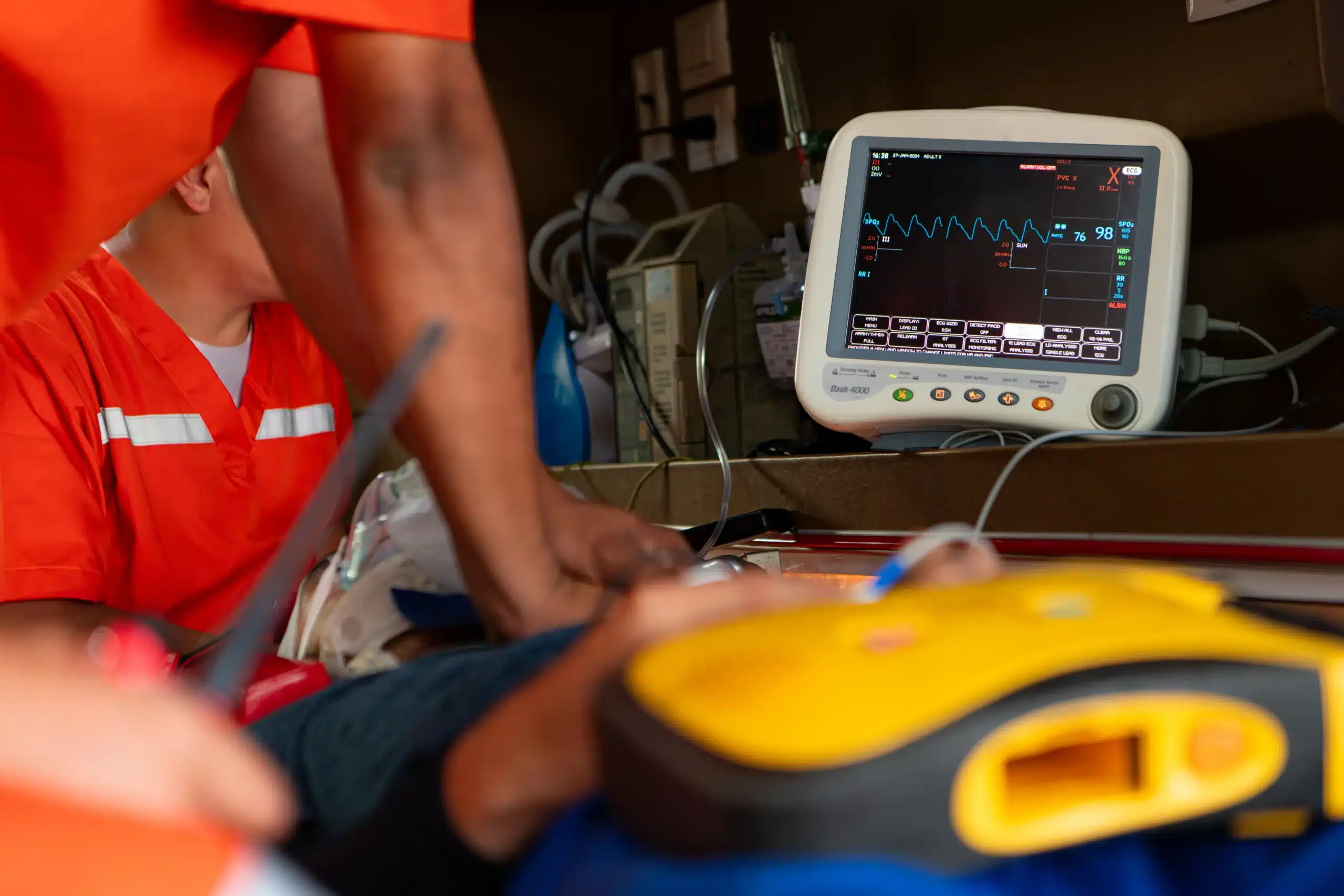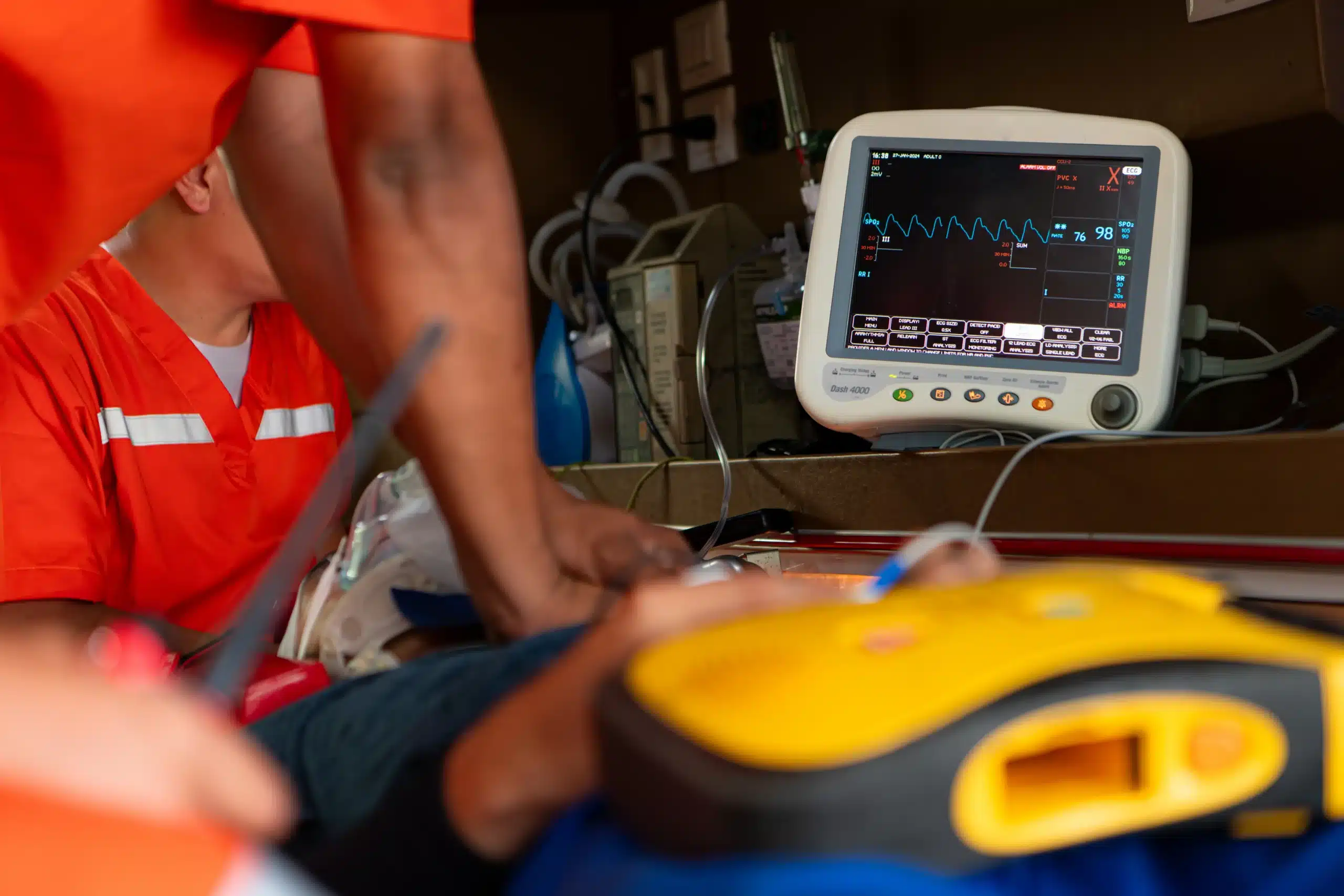Balancing work, family, and a desire to advance your education can be challenging. If you’re in Rocklin and dreaming of a career in library and information science, online BLIS classes in Rocklin offer a flexible path to achieving your goals. This comprehensive guide explores the benefits of online BLIS programs, providing insights into curriculum structure, career prospects, and the application process. We’ll also discuss the importance of accreditation, financial aid options, and strategies for thriving in a virtual learning environment. Join us as we uncover the exciting possibilities that await you in the world of online BLIS education.
Key Takeaways
- Online BLIS programs offer flexible learning: Manage your schedule and study at your own pace, making it easier to balance education with other commitments.
- Explore diverse career options: A BLIS degree prepares you for a range of careers, from traditional library roles to cutting-edge digital information management. Research potential career paths to find the right fit for you.
- Take advantage of student support: Maximize your online learning experience by utilizing available resources like academic advising, career services, and digital library access.
What are Online BLIS Programs in Rocklin?
Online Bachelor of Library and Information Science (BLIS) programs in Rocklin offer a flexible way to build a strong foundation in library science and information management. These programs are designed for people balancing work, family, or other obligations while pursuing their education. A typical online BLIS program takes about one year, often spread across two semesters. This accelerated format helps students quickly gain the skills they need to start or advance their careers. Online BLIS programs cover essential topics like library administration, data management, and the preservation of resources, preparing graduates for a dynamic field. For details about specific program requirements and courses, it’s always best to contact the schools directly. If you need a flexible, career-focused option, an online BLIS program might be worth exploring.
Find Top Online BLIS Classes
Finding the right online Bachelor of Library and Information Science (BLIS) program requires careful research. Here are a few avenues to explore:
Sierra College
While Sierra College doesn’t currently offer a full BLIS degree, exploring their online course catalog can be a smart first step. They offer programs that may align with library and information science, potentially providing foundational coursework or fulfilling general education requirements. This can be particularly helpful for local students in Rocklin seeking flexible learning options. Checking with their academic advisors can provide more personalized guidance.
Other Local Options
Even if a full BLIS isn’t available locally, consider supplementing your online learning with relevant skills training. Strong communication and presentation skills are valuable in any information-focused career. Look into local workshops or community college courses that can enhance these abilities. Interestingly, even seemingly unrelated fields can offer transferable skills. For example, BLS CPR classes in Rocklin emphasize clear communication under pressure—a skill highly relevant to library and information professionals. Developing strong interpersonal skills through community involvement or volunteer work can also be beneficial.
Online Universities with BLIS Programs
Broaden your search to include universities offering fully online BLIS programs. Online BLIS programs provide comprehensive education in library science and information management with the flexibility many students need. These programs are ideal for working professionals or those with other commitments. Research different universities, compare their curricula, and consider factors like accreditation and career support services when making your decision. Distance learning formats offer the convenience of studying from anywhere, allowing you to earn your degree while managing your existing responsibilities.
Explore Online BLIS Curricula
A Bachelor of Library and Information Science (BLIS) degree equips you with the skills needed for a career in libraries and information centers. Online BLIS programs offer flexibility and often focus on the digital skills essential for modern library management. Let’s explore what you can expect from an online BLIS curriculum.
Core Courses and Specializations
BLIS programs blend theoretical knowledge with practical application. You’ll find core courses covering topics like information organization, cataloging, library management, and research methods. Many online programs also offer specializations, allowing you to focus on areas like digital archives, information technology, or user experience. Some programs are designed specifically for distance learning, like the one offered through Acharya Nagarjuna University. This comprehensive approach prepares you for diverse roles within the field.
Practical Components and Digital Skills
Online BLIS programs understand the importance of hands-on experience. Expect practical components like virtual library simulations, online research projects, and opportunities to interact with digital library systems. You’ll develop skills in managing library databases, accessing electronic resources, and utilizing various software tools. Some online courses even structure practical training within specific semesters, focusing on key skills like data management and resource preservation. These practical experiences translate directly to real-world library settings.
Balance Theory and Application
A well-rounded BLIS program balances theoretical foundations with practical applications. You’ll learn the history and principles of library science while simultaneously developing the technical skills needed in today’s digital libraries. Choosing an ALA-accredited program ensures a solid foundation and can open doors to various career opportunities. This balance between theory and application prepares you for both traditional library roles and emerging career paths in digital information management. An online BLIS course can be a valuable investment in your future, offering a flexible and relevant path to a fulfilling career in library science.
Break Down BLIS Program Costs
Pursuing a Bachelor of Library and Information Science (BLIS) degree involves understanding the associated costs. Let’s break down the expenses you might encounter, from tuition to potential financial aid options.
Tuition Fees and Additional Expenses
Tuition is a primary factor in your budgeting process. Online BLIS programs offer flexible learning, but tuition rates can vary significantly between institutions. Researching different universities and their online BLIS offerings will give you a clearer picture of the potential financial commitment. A typical online BLIS program lasts about two semesters, or one year. Factor this timeframe into your budget planning. Beyond tuition, anticipate additional expenses like textbooks, software, and technology fees. Inquire about these costs upfront.
Financial Aid and Scholarship Opportunities
Many universities offering online BLIS programs understand the financial challenges students face. They often provide financial aid options, including scholarships and grants, designed to support students pursuing careers in library and information sciences. Explore the financial aid resources available at your chosen institution. Federal grants and private scholarships are also worth exploring.
Compare Costs: Online vs. Traditional Programs
One of the key advantages of online BLIS programs is the potential for cost savings compared to traditional, on-campus learning. Online programs eliminate the need for commuting and often reduce or eliminate on-campus housing costs. While traditional programs might offer a different learning experience, online programs can be a more affordable option without sacrificing the quality of education, especially if you choose an ALA-accredited program. Weigh the pros and cons of each format to determine the best fit for your learning style and budget.
Apply to Online BLIS Programs
Ready to explore the world of library and information science? This section breaks down the application process for online Bachelor of Library and Information Science (BLIS) programs.
Academic Prerequisites
Most online BLIS programs require a high school diploma or equivalent. The curriculum blends traditional library science with modern technology, covering topics like metadata, cataloging, and digital library management. This foundation is key for a successful career in the field. You’ll find programs covering both the history of libraries and the latest in information technology.
Application Materials and Deadlines
Finding the right university with a strong online program is an important first step. Check out reputable online universities offering BLIS programs and see what they offer. Be prepared to gather your transcripts, letters of recommendation, and a personal statement. Each institution has its own application deadlines, so check those early in the process.
Tips for a Successful Application
Want to make your application stand out? Consider attending an online orientation and exploring any available online tutorials. Many universities offer these resources to help online students. Choosing an ALA-accredited BLIS program can also give your career a significant advantage, showing potential employers you’ve completed a program meeting high professional standards. It can also open doors to more job opportunities and professional development resources.
Discover BLIS Career Opportunities
A Bachelor of Library and Information Science (BLIS) degree opens doors to a surprisingly wide range of career paths. Whether your heart lies in the quiet atmosphere of a traditional library or the fast-paced world of digital information management, a BLIS degree can give you the skills you need. Let’s explore some of the exciting possibilities.
Traditional Library Roles
Many BLIS graduates find rewarding careers in traditional library settings. These roles offer the chance to directly serve communities by connecting people with information and resources. You might manage library collections, help patrons with research, or develop engaging community programs. Public, academic, and special libraries all hire BLIS graduates, offering diverse environments and opportunities to specialize. Think children’s librarians, archivists, or subject matter specialists.
Information Management Positions
Beyond traditional library work, a BLIS degree can lead to information management positions in various sectors. Businesses, government agencies, and non-profit organizations all need skilled professionals to organize, manage, and analyze the ever-growing flow of information. With a BLIS degree, you could work as a knowledge manager, a database administrator, or an information architect, playing a key role in how organizations use and share information effectively.
Emerging Career Paths in Digital Libraries
The digital revolution has transformed the library and information science field, creating dynamic new career paths. A BLIS degree, particularly one with a focus on digital libraries, can prepare you for these emerging roles. Digital asset management, digital curation, and user experience design are just a few examples of the opportunities available to tech-savvy BLIS graduates. As more information moves online, the demand for professionals who can manage, preserve, and provide access to this information will only increase.
Weigh Online BLIS Pros and Cons
Choosing an online Bachelor of Library and Information Science (BLIS) program requires careful consideration of the advantages and disadvantages. Understanding these will help you decide if online learning fits your lifestyle and career goals.
Flexibility and Work-Life Balance
Online BLIS programs offer unparalleled flexibility, a major draw for many students. You can often access course materials and lectures anytime, anywhere, allowing you to create a study schedule that works around your existing commitments. This flexibility is particularly beneficial for working professionals, parents, or anyone juggling multiple responsibilities. Online programs can provide the work-life balance needed to pursue higher education without sacrificing other important aspects of your life. Many online programs offer asynchronous learning, meaning you don’t have to attend live classes at set times. This structure allows you to review course content at your own pace and revisit materials as needed. This flexible learning environment can be a great benefit for those with busy schedules.
Local Networking Opportunities
While online programs excel at flexibility, building professional connections might require a more proactive approach. Seek out opportunities to connect with classmates through online forums and virtual study groups. Consider joining professional library and information science organizations in your local area. Attending conferences and workshops can also help you connect with professionals in the field and expand your network. Remember, networking is a two-way street. Actively participate in online discussions and reach out to classmates to build relationships. Explore local library associations and groups to connect with fellow professionals in your area.
Overcome Common Misconceptions
Some people believe online learning is less rigorous than traditional classroom learning. This isn’t true. Accredited online BLIS programs maintain high academic standards and require the same level of commitment and effort as in-person programs. Another misconception is that online learning is isolating. While online programs offer independent study, many also incorporate collaborative projects and group discussions, fostering a sense of community among students. If you’re concerned about the perceived lack of interaction in online learning, look for programs that offer virtual office hours and online tutoring services. Addressing these misconceptions can help you approach online learning with confidence.
Time Management Strategies
Effective time management is crucial for success in any online program. Treat your online coursework like a regular job, setting aside dedicated study time each week. Create a realistic study schedule that you can stick to and break down large assignments into smaller, manageable tasks. Use a planner or calendar to track deadlines and stay organized. Because online learning offers flexibility, it’s easy to fall behind if you don’t manage your time effectively. Explore different time management techniques to find what works best for you. Prioritizing tasks and minimizing distractions will help you stay focused and make the most of your online learning experience. Developing strong time management skills is essential for succeeding in an online BLIS program.
Check Accreditation and Industry Recognition
Importance of Accredited Programs
Choosing an accredited Bachelor of Library and Information Science (BLIS) program is essential for a successful library and information science career. Accreditation by the American Library Association (ALA) signifies that the program meets rigorous standards set by the profession. Earning a degree from an ALA-accredited program provides a strong foundation and validates the quality of your education for potential employers. This recognition can open doors to more competitive job opportunities and enhance your career trajectory. It also ensures you’ve received comprehensive training in essential areas like information organization, access, and technology.
Professional Associations and Certifications
Beyond accreditation, engaging with professional organizations and pursuing certifications can significantly strengthen your professional profile. Organizations like the American Library Association and the Special Libraries Association offer valuable resources, networking opportunities, and continuing education options. These connections can keep you updated on industry trends and help you connect with other professionals. Consider pursuing relevant certifications, such as those offered by the Academy of Certified Archivists, to demonstrate specialized skills and a commitment to professional growth. These credentials can make you a more desirable candidate and boost your career prospects.
Prepare for Online BLIS Success
Successfully completing an online BLIS program requires more than just enrolling in the right classes. It takes preparation and a proactive approach to learning in a digital environment. Here’s how to set yourself up for success:
Essential Technology Requirements
Before you start your online BLIS journey, take stock of your tech. Do you have a reliable computer and stable internet access? These are foundational elements for online learning. Check if your computer meets the program’s system requirements and consider investing in a good-quality headset for virtual classes and group projects. A printer might also be handy for assignments and research materials.
Develop Digital Literacy Skills
Online learning often involves navigating various digital platforms and software. Familiarize yourself with the learning management system (LMS) your program uses. Many schools offer online tutorials and orientations to help you get comfortable with the technology and online learning environment. Don’t hesitate to reach out to tech support or faculty if you encounter any challenges. The more comfortable you are with the digital tools, the smoother your online learning experience will be. Accessing research resources designed for online students can also be beneficial.
Maximize Online Learning Platforms
Online learning platforms offer a wealth of resources beyond just course materials. Explore discussion forums, online libraries, and collaborative workspaces. These platforms can be powerful tools for connecting with classmates, asking questions, and deepening your understanding of the material. Don’t be afraid to experiment with different features and find what works best for you. Challenge any preconceived notions you might have about online learning and embrace the unique opportunities it presents. Consider exploring articles that debunk common misconceptions about online learning.
Build a Virtual Support Network
Connecting with fellow students and instructors in a virtual environment is crucial for a successful online learning experience. Actively participate in online discussions, join virtual study groups, and reach out to classmates for support. Building relationships with your peers can create a sense of community and provide valuable support throughout your program. Don’t underestimate the importance of creating connections in a virtual space. It can make all the difference in your online learning journey. Learning about inclusive design principles in online education can also enhance your experience.
Access Student Resources and Support
Online BLIS programs often provide robust student support services to help you succeed in your studies and career. Understanding these resources is key to making the most of your online learning experience.
Academic Advising and Tutoring
Navigating online learning can feel overwhelming. Many online BLIS programs offer academic advising to help you stay on track. Advisors can guide you through course selection, degree requirements, and time management strategies. They’re available to answer your questions and provide personalized support throughout your program. Some programs also offer tutoring services, which can be invaluable for challenging courses. Tutoring can boost your confidence and help you master the material. A strong foundation in library and information studies is essential, as described in this overview of a Bachelor of Library and Information Studies (BLIS) degree.
Career Services and Job Placement Assistance
A BLIS degree opens doors to various career opportunities. Many online programs offer career services to help you prepare for the job market. These services can include resume and cover letter writing assistance, interview prep, and job placement support. They can connect you with potential employers and help you find the right fit for your skills and interests. The growing demand for graduates with expertise in library science and information management, as highlighted in this resource on online BLIS courses, makes career support a valuable asset.
Access to Digital Libraries and Research Tools
As an online BLIS student, you’ll have access to extensive digital resources. Online libraries offer vast collections of ebooks, journals, and databases, providing the tools you need for research and coursework. These resources are often available 24/7, allowing you to study at your own pace. Many programs offer training and support to help you manage library data and access electronic resources, preparing you for work in a modern library or information center.
Frequently Asked Questions
Is an online BLIS degree as respected as a traditional degree?
Absolutely. Accreditation is key here. If you choose an online BLIS program accredited by the American Library Association (ALA), it holds the same weight as a traditional degree. Employers recognize ALA accreditation as a mark of quality and comprehensive education.
I work full-time. Is online learning really manageable with a busy schedule?
Yes, the flexibility of online learning is designed for busy people. You can often access coursework at any time, allowing you to fit your studies around work and other commitments. However, it still requires dedication and good time management skills.
What kind of technical skills will I need for an online BLIS program?
Basic computer skills and reliable internet access are essential. You’ll need to be comfortable using a learning management system (LMS), online research databases, and other digital tools. Most programs offer support and tutorials to help you get up to speed.
Will I have any interaction with other students in an online program?
While online learning offers independent study, many programs incorporate collaborative projects, discussion forums, and virtual study groups. These opportunities allow you to connect with classmates and build a sense of community.
What career options are available after completing an online BLIS program?
A BLIS degree opens doors to a wide range of careers, from traditional library roles like librarians and archivists to information management positions in businesses and other organizations. You can also pursue emerging career paths in digital libraries and information technology.






